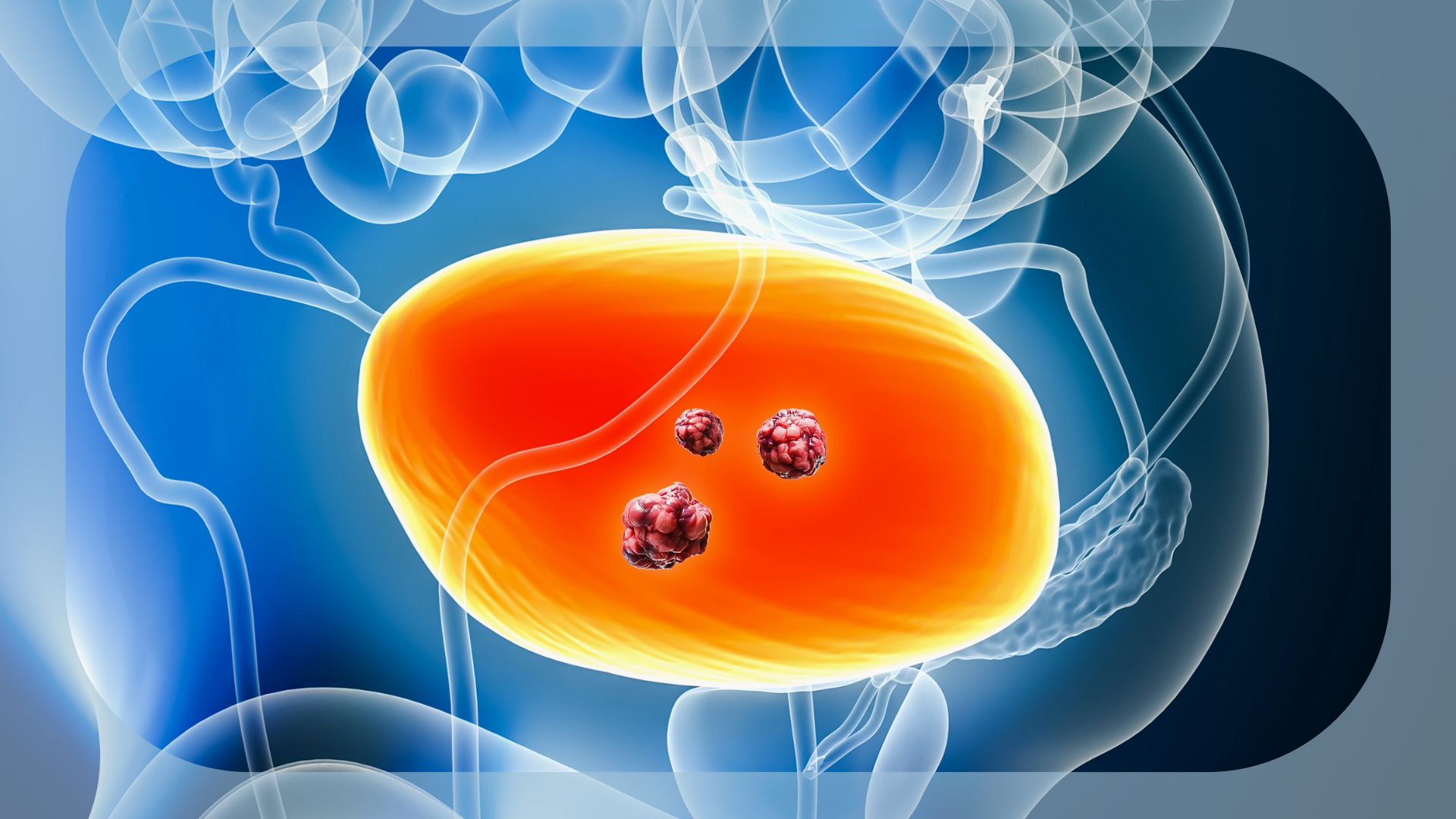NMIBC | Image credit:
© Matthieu – stock.adobe.com
The United Kingdom Medicines and Healthcare products Regulatory Agency (MHRA)has granted marketing authorization for the combination of nogapendekin alfa inbakicept-pmln (Anktiva) and BCG for the treatment of patients with BCG-unresponsive non–muscle-invasive bladder cancer (NMIBC) with carcinoma in situ (CIS).1
This regulatory decision was supported by efficacy and safety data from the single-arm, multicenter, phase 2/3 QUILT-3.032 trial (NCT0302285). Among 77 evaluable patients who received the combination for a maximum of 37 months, at a data cutoff in November 2023, the maximum duration of complete response (DOCR) exceeded 47 months, and responses were ongoing in some patients. The extension of DOCR beyond 24 months with nogapendekin alfa inbakicept plus BCG surpassed the benchmark for meaningful clinical results that was established by experts from the International Bladder Cancer Group.
“With the MHRA’s authorization of [nogapendekin alfa inbakicept] plus BCG, we can now offer our immunotherapy outside the United States to help patients with a disease that, if not effectively treated, can lead to bladder removal,” Patrick Soon-Shiong, MD, founder, executive chairman, and global chief scientific and medical officer of ImmunityBio, stated in a news release. “This immune-boosting, lymphocyte-stimulating agent, the first-of-its-kind [agent], is central to our Cancer BioShield platform, which is designed to restore immune function and support long-term disease control.”
Previously, in April 2024, the FDA approved nogapendekin alfa inbakicept plus BCG for the treatment of adult patients with BCG-unresponsive NMIBC with CIS with or without papillary tumors.2 The findings from QUILT-3.032 that led to this approval showed that among 77 evaluable patients, the CR rate was 62% (95% CI, 51%-73%).2,3 Furthermore, 58% of patients who achieved a CR experienced a duration of response (DOR) of 12 months or longer, and 40% of patients who achieved a CR experienced a DOR of at least 24 months.
Nogapendekin alfa inbakicept is a first-in-class IL-15 agonist that activates and proliferates CD4-positive T cells, CD8-positive T cells, and natural killer cells.1 It is designed to reverse lymphopenia, thereby restoring immune competence, which is crucial for immunogenic cell death, immunosurveillance, and sustained tumor control.
QUILT-3.032 enrolled patients with NMIBC with persistent or recurrent CIS alone or with Ta/T1 disease within 12 months of completion of adequate BCG therapy.3 Prior to treatment, all patients with Ta/T1 disease needed to undergo transurethral resection of bladder tumor to remove all resectable disease. Patients received 400 μg of nogapendekin alfa inbakicept plus BCG for 6 consecutive weeks during the induction treatment period. Patients with no or low-grade disease then received the combination once weekly every 3 weeks at 4, 7, 10, 13, and 19 months. Patients with persistent CIS or high-grade Ta disease at 3 months were permitted to receive a second induction course. Patients who achieved ongoing CR at 25 months were permitted to receive additional instillations of therapy once weekly every 3 weeks at months 25, 31, and 37.
Major efficacy outcomes included CR at any time, as well as DOR.
Updated data from QUILT-3.032, which were presented at the 2025 AUA Annual Meeting, showed that in cohort A, which enrolled patients with BCG-unresponsive NMIBC with CIS with or without papillary tumors (n = 100), the CR rate was 71% (95% CI, 61.1%-79.6%).4 Additionally, among 71 evaluable responders, the DOCR was 53 months and ongoing. Furthermore, 60% of responders experienced DORs lasting at least 12 months. At 36 months, the cystectomy-free survival rate among responders was 84%, and the disease-specific survival rate was 99%.
Moreover, in the FDA label population, at a median follow-up of 29.3 months, the DOCR exceeded 45 months in 51% of patients (95% CI, 33%-66%).
The most common adverse effects associated with nogapendekin alfa inbakicept observed in at least 15% of patients include increased creatinine levels, dysuria, hematuria, urinary frequency, micturition urgency, urinary tract infection, increased potassium levels, musculoskeletal pain, chills, and pyrexia.1
Notably, regulatory applications seeking the approval of nogapendekin alfa inbakicept have been submitted to the European Medicines Agency, as well as regulatory authorities in Norway, Lichtenstein, and Iceland.
References
- UK MHRA approves ImmunityBio’s ANKTIVA plus BCG for BCG-unresponsive non-muscle invasive bladder cancer carcinoma in situ. News release. ImmunityBio, Inc. July 7, 2025. Accessed July 8, 2025. https://immunitybio.com/uk-mhra-approves-immunitybios-anktiva-plus-bcg-for-bcg-unresponsive-non-muscle-invasive-bladder-cancer-carcinoma-in-situ/
- FDA approves nogapendekin alfa inbakicept-pmln for BCG-unresponsive non-muscle invasive bladder cancer. FDA. April 22, 2024. Accessed July 8, 2025. https://www.fda.gov/drugs/resources-information-approved-drugs/fda-approves-nogapendekin-alfa-inbakicept-pmln-bcg-unresponsive-non-muscle-invasive-bladder-cancer
- Anktiva. Prescribing information. FDA. April 2024. Accessed July 8, 2025. https://www.accessdata.fda.gov/drugsatfda_docs/label/2024/761336s000lbl.pdf
- Chang S, Chamie K, Kramolowsky E, et al. An updated on QUILT-3.032: complete responses to N-803 plus BCG therapy in BCG-unresponsive bladder carcinoma in situ (CIS) with or without papillary disease. Presented at: American Urological Association Annual Meeting; April 26-29, 2025; Las Vegas, NV. Abstract PD12-12.
